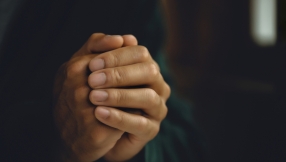Pro-family advocates worried Same-Sex "Marriage" pave the way for Polygamy
"I feel that within the next 15 to 20 years, a major effort to legalize polygamy will be underway in the U.S." Peter Sprigg is senior director for the Family Research Council's Center for Marriage and Family Studies. He also believes that if homosexual marriage is made legal, the push for polygamy could become accelerated.
Sprigg explains why a major and sustained effort to legalize polygamy has not been tried before now. "We have a large, well financed, 30-year-old social movement pushing for same-sex marriage," he says. "If polygamists were as well organized, as well connected in the media as homosexuals are, then we'd be seeing a push for polygamy too."
But now, Sprigg feels the advocates of polygamy are only waiting to get a foot in the door, and he fears that the homosexual activists may be giving them just the opening they need.
Family Research Council (FRC) president Tony Perkins agrees and says FRC spokesman as well as other pro-family leaders have been confronting same-sex marriage advocates about the slippery slope downwards from homosexual marriage to polygamy and other distortions of the God-ordained family. And the answer, he says, has been silence.
The pro-family leader says homosexual activists are hoping Americans to follow them blindly down the road toward same-sex "marriage," a road that he and other defenders of traditional marriage can clearly see leading to a dead end.
Many advocates of same-sex marriage recognize that it is part of a strategy of deconstructing any social ideal in family. David L. Chambers, a distinguished law professor at the University of Michigan said, "If the law of marriage can be seen as facilitating the opportunities of two people to live an emotional life that they find satisfying -- rather than as imposing a view of proper relationships -- the law ought to be able to achieve the same for units of more than two."
To a large extent, the debate over same-sex marriage is now less about homosexuality than it is about marriage. Except on the far right, objections to same-sex marriage are rarely couched in terms of moral objections to homosexual relationships. Historically in our culture, the argument goes, marriage means something: the union of husband and wife who can give to their children a mother and a father.
Change it to include a union of two men, it may be redefined further to include one man and two women, two women and three men, or any other possible combination? Would that be such a terrible thing? If someone has two, three, or six spouses of either sex, they are presumably all consenting adults; if they are harming anyone, it is only themselves. Polygamous relationships are likely to involve imbalances of power and even psychological abuse, and that they carry a high risk of instability and stress.
While legalizing same-sex unions is extremely unlikely to entice any heterosexual man to leave his wife and marry another man, having multiple partners could potentially be a temptation for anyone.













